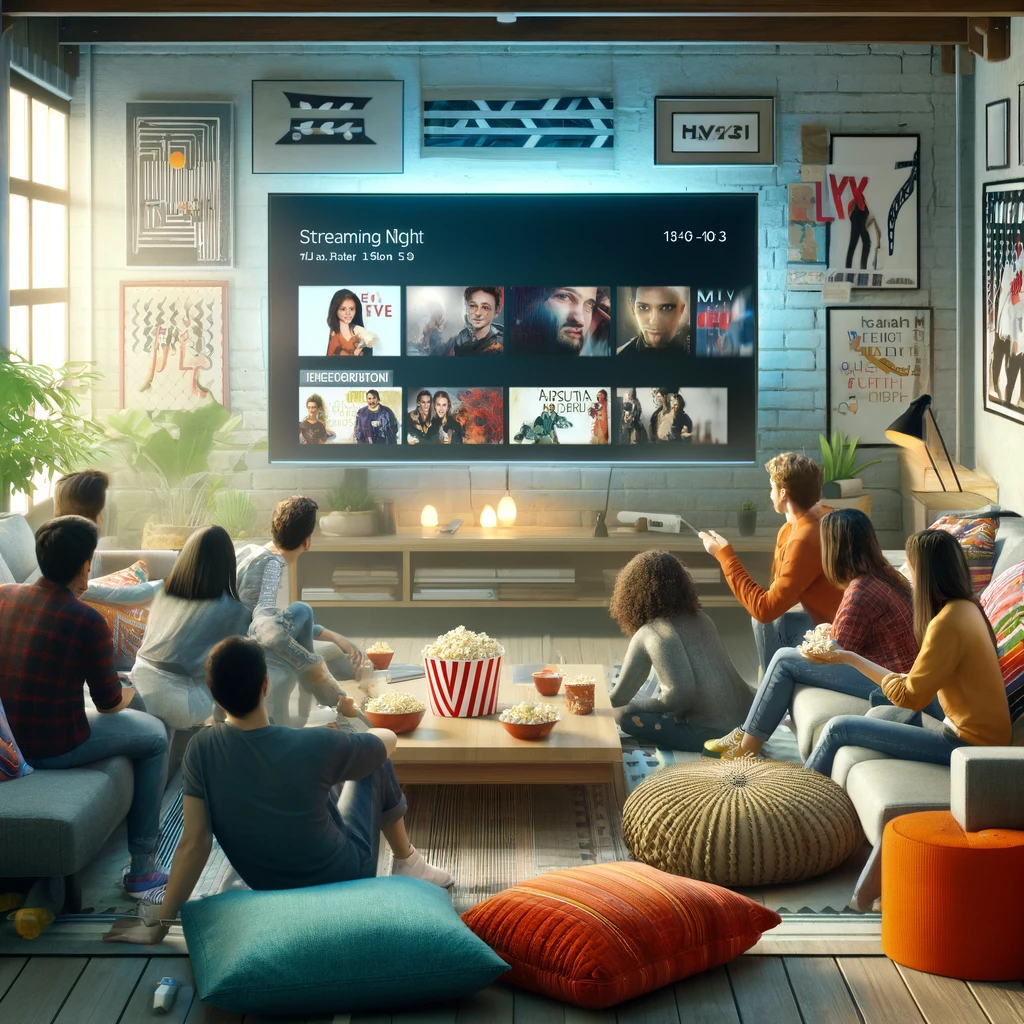Platforms like Netflix, Amazon Prime, Disney+, and Hulu have not only changed how audiences consume content but have also redefined the very nature of film production, distribution, and marketing. This transformation has been both profound and multifaceted, affecting everything from casting calls to audience expectations.
The Streaming Revolution
Streaming services have democratized access to a vast array of content, enabling viewers to watch films and series anytime, anywhere. This convenience has led to a significant decline in traditional cable subscriptions and a shift away from physical media like DVDs and Blu-rays. According to a 2023 report by PwC, streaming services are now the primary source of entertainment for millions of households worldwide, with revenues expected to surpass those of the traditional film industry within a few years.
Changes in Production and Distribution
One of the most notable changes brought about by streaming services is the shift in production and distribution models. Traditionally, filmmakers relied on theatrical releases to generate revenue. However, with the advent of streaming, many films now premiere directly on digital platforms. This trend has been accelerated by the COVID-19 pandemic, which forced theaters to close and pushed studios to adapt quickly.
For filmmakers, this new model offers both challenges and opportunities. On the one hand, the reduced reliance on theatrical releases means that films can reach a global audience more quickly and efficiently. On the other hand, the competition is fierce, and filmmakers must navigate the complex algorithms and recommendation systems that streaming platforms use to promote content.
Impact on Casting and Auditions
The rise of streaming services has also affected the casting and auditioning process. With the increase in content production, there are more opportunities for actors than ever before. Platforms like Netflix and Amazon Prime are producing a wide variety of shows and movies, which means more roles and a greater diversity of characters.
Casting directors are increasingly turning to online platforms to find talent. Websites that list “Atlanta casting calls” and opportunities to “audition for movies” have become invaluable resources for aspiring actors. These platforms allow actors from all over the world to submit their auditions digitally, breaking down geographic barriers and enabling a more inclusive and diverse casting process.
New Opportunities for Independent Filmmakers
Streaming services have opened new doors for independent filmmakers who previously struggled to get their work seen. Without the need for expensive theatrical distribution deals, indie filmmakers can now showcase their films to a global audience through platforms like Amazon Prime Video and Netflix. This accessibility has led to a renaissance in independent filmmaking, with unique and diverse stories finding their way to audiences who crave fresh and innovative content.
Moreover, streaming platforms are increasingly investing in original content, providing funding and resources for projects that might not have been greenlit by traditional studios. This investment in originality and diversity has led to critically acclaimed films and series that push the boundaries of storytelling.
The Binge-Watching Phenomenon
Another significant impact of streaming services is the rise of binge-watching. The ability to watch entire seasons of a show in one sitting has changed how stories are told and consumed. Filmmakers and showrunners are now crafting narratives with binge-watching in mind, often using cliffhangers and serialized storytelling to keep audiences engaged.
This shift has also influenced the length and pacing of content. Episodes and films are no longer constrained by the need to fit into traditional time slots, allowing for more creative freedom. However, it also means that content must be compelling enough to hold viewers’ attention for extended periods, leading to higher production values and more emphasis on quality writing and character development.
The Future of the Film Industry
As streaming services continue to evolve, their impact on the film industry will only grow. We can expect to see more innovation in how content is created, distributed, and consumed. Virtual reality (VR) and augmented reality (AR) are poised to become integral parts of the streaming experience, offering immersive ways to engage with films and series.
Moreover, data analytics will play an increasingly important role in shaping content. Streaming platforms have access to vast amounts of viewer data, which they use to tailor recommendations and even influence the types of films and shows that get produced. This data-driven approach can lead to highly targeted content that resonates deeply with specific audiences.
Conclusion
The rise of streaming services has fundamentally transformed the film industry, creating new opportunities and challenges for filmmakers, actors, and audiences alike. From changing how films are produced and distributed to revolutionizing the casting process and ushering in the era of binge-watching, streaming platforms have reshaped the entertainment landscape in profound ways. As technology continues to advance, the film industry will no doubt continue to evolve, offering even more exciting possibilities for the future of storytelling.
















